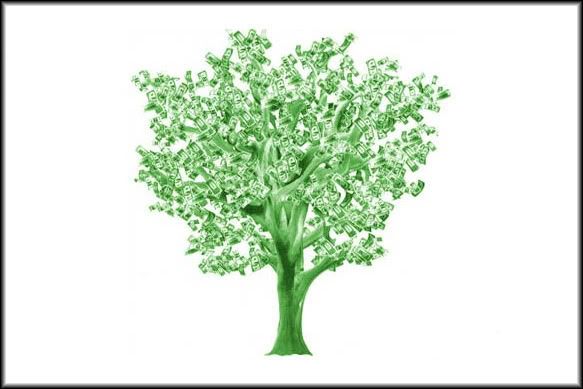Kurt Kleiner provides an overview of the problems associated with using the Gross Domestic Product (GDP) as an indicator of true societal wellbeing in Is Life Getting Better? in the Winter 2010 issue of U of T Magazine.
"What you measure affects what you do" (Joseph Stiglitz).
I am surprised it took us this long to figure it out. Granted, asking whether or not life is getting better requires us to devise new and unique ways of measuring well-being. After all, what is "well-being" if not measured by economic prosperity? On what basis do we measure notions of "success" or "progress"? How do we account for well-being at all if economics cannot be used to devise indices?
Kleiner asks much of the same questions as he recaps a recent report commissioned by economists Joseph Stiglitz and Amartya Sen and the findings are hardly groundbreaking. The GDP, while great at establishing a basis for the comparison of world economies fails to include in its calculations goods and services which are not paid for (e.g. housework or parenting). It also fails to account for income distribution within society as a whole, effectively allowing income disparity to exist unchecked and unabated. This is hardly surprising since the main purpose of the GDP has simply been to measure the total (economic) value of goods and services produced within a given country with little attention to much else.
Stiglitz and Sen (and by extension, Kleiner) were demonstrating the fact that the "unhealthy obsession" with the GDP masked many of the underlying signs which would have pointed to the recent global economic weakening. The article goes on to indicate that in response to the recognized fallibility of the GDP, several attempts have been made to measure collective societal well-being. Indices such as the UN Human Development Index provide an analysis which combines both GDP with health and education. Other indices of arguably questionable veracity such as The Happy Planet Index measure things like "subjective life satisfaction" or "national happiness". (Maybe it's just the titles that are throwing me off.)
As a student working to situate my interests somewhere in the realm of (international) environmental policy, I am most interested in the ways in which the GDP fails to account for environmental "goods" (benefits) or"bads" (disbenefits). As Kleiner states, "GDP...doesn't include value judgments about how or why money is being spent. So if a steel manufacturer creates huge amounts of pollution, the cost of the steel it makes is added to national income but the harm from the pollution doesn't show up as a debit." In theory, these new indicators (such as the Green Gross Domestic Product) would incorporate pollution or the benefit of clean water and air in their calculation of well-being but even this requires that we unpack the problematic term well-being.
So just what is well-being? Is it an equitable concept amongst individuals and can it be extrapolated across the spectrum of society? Kleiner asks whether well-being and happiness are terms that should be conflated. By extension, he also asks whether well-being is a "set of good life circumstances...associated with a subjective feeling of happiness"? How do we know when people are happy? (Kleiner gives a nod to psychology's field of "happiness studies", but I am reminded of [H]ouse's adage: "Everyone lies".)
My own interest takes this one step further and asks how environmental indicators can be folded into measures of happiness and conversely into measures of well-being. I would argue that NIMBYism plays a large role in our ability to tolerate (and even accept) certain types of environmental disamenities. To that end:
Are you happy?
How happy are you?
Does your environment (natural or otherwise) have an impact on your happiness?
How would you measure well-being if not through GDP?
Kleiner asks much of the same questions as he recaps a recent report commissioned by economists Joseph Stiglitz and Amartya Sen and the findings are hardly groundbreaking. The GDP, while great at establishing a basis for the comparison of world economies fails to include in its calculations goods and services which are not paid for (e.g. housework or parenting). It also fails to account for income distribution within society as a whole, effectively allowing income disparity to exist unchecked and unabated. This is hardly surprising since the main purpose of the GDP has simply been to measure the total (economic) value of goods and services produced within a given country with little attention to much else.
Stiglitz and Sen (and by extension, Kleiner) were demonstrating the fact that the "unhealthy obsession" with the GDP masked many of the underlying signs which would have pointed to the recent global economic weakening. The article goes on to indicate that in response to the recognized fallibility of the GDP, several attempts have been made to measure collective societal well-being. Indices such as the UN Human Development Index provide an analysis which combines both GDP with health and education. Other indices of arguably questionable veracity such as The Happy Planet Index measure things like "subjective life satisfaction" or "national happiness". (Maybe it's just the titles that are throwing me off.)
As a student working to situate my interests somewhere in the realm of (international) environmental policy, I am most interested in the ways in which the GDP fails to account for environmental "goods" (benefits) or"bads" (disbenefits). As Kleiner states, "GDP...doesn't include value judgments about how or why money is being spent. So if a steel manufacturer creates huge amounts of pollution, the cost of the steel it makes is added to national income but the harm from the pollution doesn't show up as a debit." In theory, these new indicators (such as the Green Gross Domestic Product) would incorporate pollution or the benefit of clean water and air in their calculation of well-being but even this requires that we unpack the problematic term well-being.
[H]ouse M.D. "Everybody lies."
So just what is well-being? Is it an equitable concept amongst individuals and can it be extrapolated across the spectrum of society? Kleiner asks whether well-being and happiness are terms that should be conflated. By extension, he also asks whether well-being is a "set of good life circumstances...associated with a subjective feeling of happiness"? How do we know when people are happy? (Kleiner gives a nod to psychology's field of "happiness studies", but I am reminded of [H]ouse's adage: "Everyone lies".)
My own interest takes this one step further and asks how environmental indicators can be folded into measures of happiness and conversely into measures of well-being. I would argue that NIMBYism plays a large role in our ability to tolerate (and even accept) certain types of environmental disamenities. To that end:
Are you happy?
How happy are you?
Does your environment (natural or otherwise) have an impact on your happiness?
How would you measure well-being if not through GDP?




















No comments:
Post a Comment